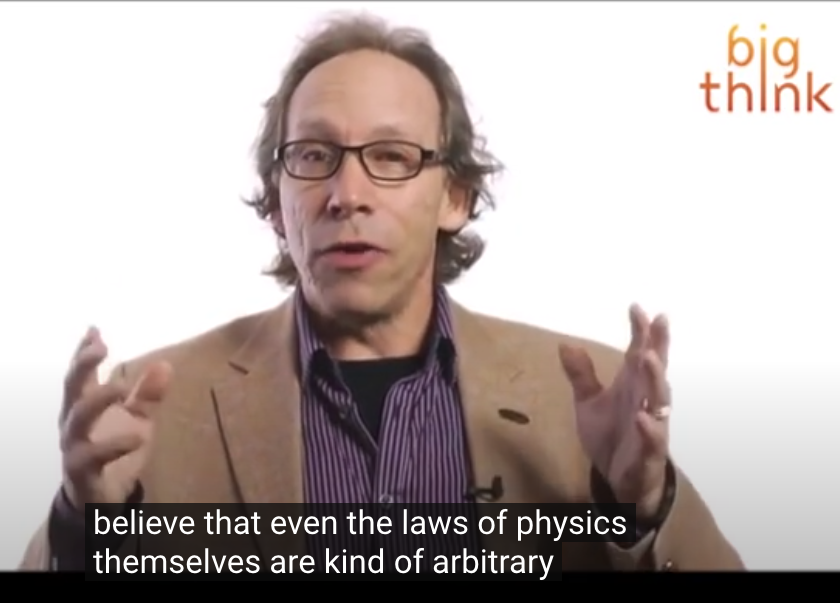In the ongoing quest to understand the cosmos, scientists and philosophers alike grapple with profound questions about the nature of the universe. Among the notable voices in this discourse is theoretical physicist Lawrence Krauss.
In these videos prof. Krauss has made intriguing statements regarding the randomness of the laws of physics and the fine-tuning of the universe, as well as what evidence he would consider as proof of the existence of God.
The Randomness of Physical Laws
Prof. Krauss has posited that the laws of physics are random and their values arbitrary. This perspective suggests that the constants and laws governing our universe could have taken on any number of values, leading to potentially vastly different universe. However, the universe we observe is precisely fine-tuned in such a way that it can support life and sustain its existence over long periods.

The Fine-Tuning Conundrum
The fine-tuning argument highlights that the physical constants and laws of the universe are set with extraordinary precision. Even slight variations in these constants could render the universe inhospitable to life as we know it or worse the collapse of the universe itself. This apparent fine-tuning raises the question: why does the universe have these specific values?
To address this conundrum, Prof. Krauss, like many like-minded scientists, has hypothesised the existence of a multiverse. According to this hypothesis, there are potentially infinite universes, each with its own set of physical laws and constants. In this vast ensemble of universes, it is not surprising that at least one—our own—would have the precise conditions necessary for life! This idea, despite lacking direct evidence, offers a naturalistic explanation for the fine-tuning problem without invoking a designer. However, one might ask: how is this different from hypothesising a designer or God?
The Evidence for Belief in God
In a different context, Prof. Krauss was asked in this video what evidence would compel him to believe in the existence of God. He responded that if he looked up at the sky and saw stars rearranged to spell out “I am here” in English or Hebrew, he would consider that sufficient evidence for God’s existence. This statement reflects a demand for direct, unambiguous evidence that speaks directly to human senses and understanding.
But The Universe Speaks in Physical Laws!
The universe, however, does not communicate in human languages like English, Hebrew, or Arabic. Instead, it “speaks” through physical laws and constants, which govern everything from the behavior of subatomic particles to the movement of galaxies. These laws are the universe’s way of organizing itself and maintaining coherence.
The arrangement of these laws and constants is far more profound than any message written in the stars. The universe’s structure, its capacity to harbor life, and its longevity are all manifestations of these underlying principles. This complex and harmonious system can be seen as a form of communication, one that goes beyond words to express the very essence of existence.
Final Thoughts…
Prof. Krauss’s insights into the randomness and fine-tuning of the universe invite us to ponder deep questions about the nature of reality. While the hypothesis of a multiverse offers one way to address the fine-tuning problem, the sheer elegance and precision of the universe’s laws and constants might themselves be seen as a form of cosmic “message.” This message, written in the language of physics, tells us that the universe is not random but remarkably ordered, enabling it to sustain life and continue its grand story.